#witchblr culture
Text
Honestly what fascinates me most about the Hocus Pocus 2 teaser is that it unintentionally shows how normalized witchcraft has become for teen girls since the first film.
Like, these two girls casually say they're going to do a ritual for the one girl's birthday, at school, in a Disney movie. They put that up front in the trailer. And they mentioned a witch gets powers on their 16th birthday.
I mean, Alison got called a white witch for using a salt circle in the first film, but for the most part witchcraft in Hocus Pocus was associated with devil worship. We've seen this massive cultural shift since then, with The Craft and Practical Magic and Harry Potter and Witchblr, even Disney's own Halloweentown series and the resurgence of the original Hocus Pocus, and it's interesting to see Disney acknowledge that.
For many, witches represent female power, with the Sandersons becoming so iconic, in spite of being evil child murderers, in part because of that. So perhaps this sequel will tackle that and show some young women learning to harness that power responsibly.
I'm interested to see where they go with this angle. Will our young heroines try to save the day with white magic, or will they regret that their spell summoned the sisters and swear off magic? It could really go either way.
69 notes
·
View notes
Text
Just a quick not friendly reminder: someone who has apologized for past mistakes, made amends for past actions, and clearly no longer holds past beliefs, is a far better person than one who digs up old dirt and uses a person's past that no longer exists against them.
68K notes
·
View notes
Text



let me be perfectly clear
3K notes
·
View notes
Text
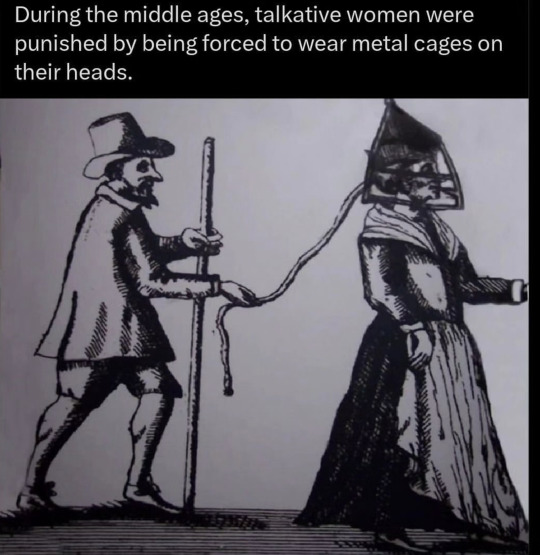
#goth#gothic#witch#witchcore#witchblr#facts#history#horror#spooky#funny#lol#haha#humor#meme#memes#dank memes#dark humor#culture#history lesson
856 notes
·
View notes
Text



finished cleaning her
#tw dead animal#dead animal#vulture culture#taxidermy#angie talks#witchcraft#witchblr#goth#gothic#goth aesthetic#horse skull#oddities
370 notes
·
View notes
Text
The main reason it's important to be at least somewhat literate in historical paganism and folk magic isn't so you can make your own practice exactly like it; it's to be able to recognize when someone is making historically inaccurate claims, because "asserting made-up shit about history as real fact" is a sign you're possibly looking at a cult and/or scam.
For the same reason, it's a good idea to be somewhat literate in pop culture media. Because being able to look at something a person is trying to pass off as Genuine Ancient Tradition or something and recognize that it's nothing like anything people actually believed or did back in Ye Olden Times but it sure as heck resembles something from a popular TV show or TTRPG is a valuable discernment skill.
#paganism#pagan#witchcraft#witchblr#discernment#cults#red flag#red flags#spiritual red flags#spiritual red flag#media#popular media#pop culture
1K notes
·
View notes
Text

e f f i g y
338 notes
·
View notes
Text

в далёких веках затеряться
посреди догорающих снов
#illustration#digital art#artists on tumblr#witchcraft#artwork#witchblr#slavic folklore#slavic culture#illustrator#moon phases#Russia#russian mythology#russian folklore#witchy#witch community#crescent#nature aesthetic
93 notes
·
View notes
Text
I think paganism would be better off if following gods from your “ancestors” was rather phrased as “gods of my culture”. Because well, for many of us, the Christian God is the god of our ancestors, especially the ones I argue matter most to our personal identities which are recent ancestry. After all, my Slovak family worshipped the Lord, but I choose to worship Morena to be closer to my culture. I also think this helps to include people who were adopted into cultures, whether by families or growing up there.
#my Cornish last name has Breton origins but I would never claim to be Breton#paganism#pagan#witchblr#witchcraft#paganblr#this also helps to emphasise culture over “blood”
227 notes
·
View notes
Text
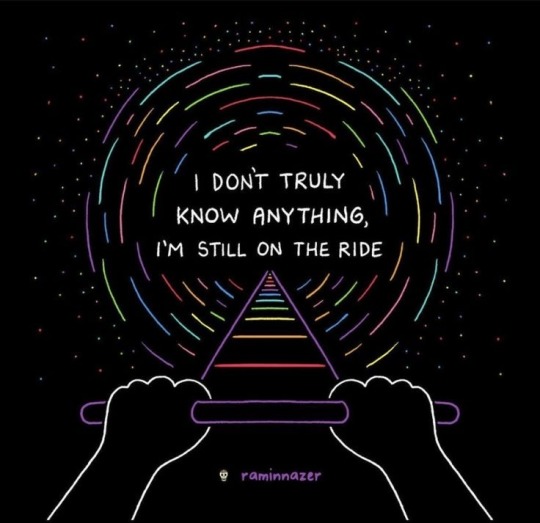

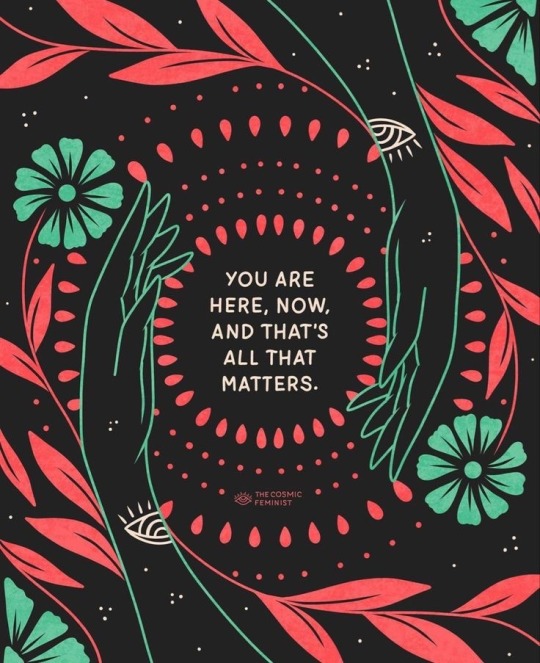



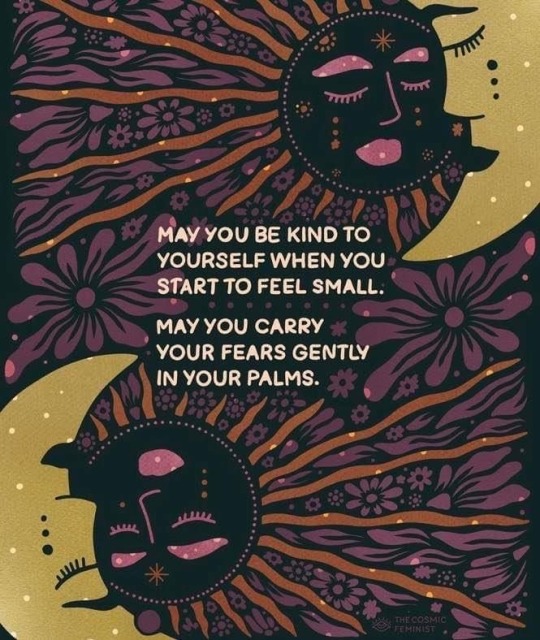

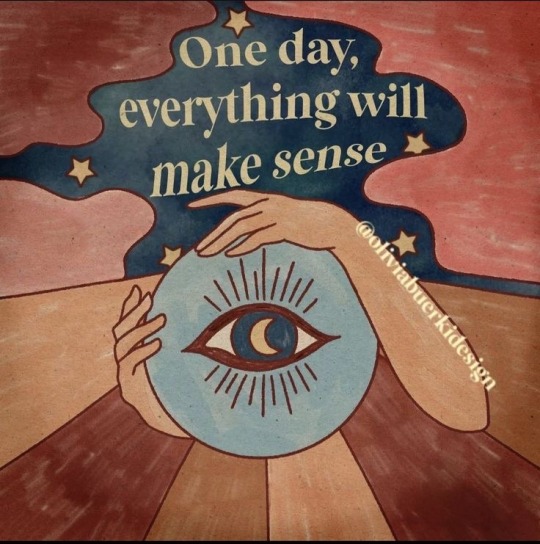
I’m not in a competition with Destiny. I’m where I’m supposed to be for my Highest Good. I’m the best girl in my Universe.
#Pink Punk Mads#positive affirmations#cosmic#spiritual ascension#spiritualhealing#spirituality#mental health#trauma healing#astroblr#tarotblr#writblr#witchblr#witchythings#witchyvibes#witchcore#tarot#self care#self love#culture#youth
393 notes
·
View notes
Text
"Celtic shamanism" literally does not exist. The Celts never practiced shamanism. Whatever spiritualism that is Celtic in origin, it is not shamanism. White people actually learn your own histories and stop stealing shit from people of color challenge 2024.
#witches of color#cultural appropriation#closed practices#witchblr#paganblr#shamanism#misinformation#racism
409 notes
·
View notes
Text



No outdoor pics due to the weather, but this is the skull I dipped yesterday! This is a later print where we decided to only hollow out the cranium. They feel a lot more balanced and are far easier to process.
1K notes
·
View notes
Text
I got another witchy FAQs question so I want to go ahead and share it.
This time, we're talking some basic chaos magic with different types of thoughtforms!
Please note that I am not an expert in chaos magic, nor do I consider myself a chaos magician, so feel free to (kindly) leave feedback or corrections as needed. ^^
Thoughtforms 101
Definition of Thoughtform: Thoughtform is a catch-all term from any entity that was created with or by human thought (conscious or otherwise).
Types of Thoughtforms: Common thoughtforms include sigils, servitors, thoughtform companions (aka tulpas), daemons, and egregores.
Sigils: Most folks who create sigils and use sigil magic probably don't think about sigils as a type of chaos magic or a thoughtform. However, sigils actually do fall into this category. Think of a sigil as being like a simple computer program that's powered by your mind. You give the program a basic function (such as protection or prosperity) and the magical "coding" of your intentions allows the sigil to carry it out.
Servitors: If sigils are basic computer programs, then servitors are robots. They're not sentient per se, as they still require the coding and programming that comes with intention and magical energy. Yet they're much more complex than a sigil and can carry out higher-level functions & multiple tasks (e.g., drawing in people to shop on your Etsy page for prosperity, or actively guarding a space or casting a magic circle for protection).
Thoughtform companions: The widespread term for this type is "tulpa," and creating/having one of these thoughtforms is commonly referred to as "tulpamancy." Since there's also a widespread controversy over these terms, I don't use them myself. I say "creating or working with a thoughtform," and I'll refer to the entity as a thoughtform or thoughtform companion. Regardless of the terminology or beliefs behind this category, they are defined as a separate consciousness created by the thoughts and actions of a human. The human is typically referred to as the "host," since the companion is typically treated as its own separate consciousness. These are fully sentient, autonomous beings with their own thoughts and feelings. They're generally created, either intentionally or not, as friends for the host (hence my personal terminology for them).
Daemons: This category is similar to a companion, but with a different origin and function. Daemons have been documented since ancient Greece, to my knowledge. A daemon is also a sentient entity, however, they are not created intentionally by the host (although they can be brought to the forefront by the human in question). A daemon is instead a conscious entity created by, and representative of, the human being's subconscious mind. They typically serve as helpers and mental guides for the human. They are not considered separate entities; instead, they're part of you.
Egregores: These are essentially the AIs of the thoughtform world. Whereas companions and daemons exist within the human mind, egregores are similar to servitors and sigils - created by the mind, but separate from it. Egregores are often made or manifested by a group of people intentionally for a purpose. E.g., a coven may create one as a guardian or a spiritual guide. They're also often created by accident from widespread symbols - for example, branding. And nations. Every time somebody posts a picture of the Starbucks logo, you're most likely feeding an egregore, according to one theory I've heard. Do I believe that personally? Not sure. (I do have an exact source for this one available on request.) As far as I know, egregores exist with varying degrees of sentience, power, and free will depending on the individual scenario (much like artificially intelligent computers & androids in science fiction).
Pop Culture Entities / Deities: These are often referred to as PCEs or PCDs. I prefer the former but I often use them interchangeably. Some folks prefer to be more specific. For example, Raiden from Mortal Kombat is considered a god in that series, so many folks would consider him a pop culture deity. Whereas Dean Winchester is *not* a deity in Supernatural - so he could be considered a pop culture entity instead. However, this is up to the preferences of the individual entity & practitioner.
Differences between PCDs and Egregores: Egregores are ALWAYS created, intentionally or not, by human energy and thought. PCDs, on the other hand, can have a mixed origin sometimes. Some of them may be pure egregores, manifested on purpose or by accident. Others may be preexisting spirits - often nature spirits that are aligned closely to the fandom content - that latch onto a fictional work as a power source, and eventually fuse with it. And then another theory is that PCDs are *all* preexisting spirits or even deities wearing a mask - so for example, folks with this belief would say that PCD Marvel Loki is just Loki appearing in a different form/aspect. I personally think that all PCEs have a unique origin and I try not to make any assumptions.
Where do I fact check you and/or learn more?: Unfortunately, it is *really damn hard* to find good, solid information on pop culture work because it's very new. And while there's *lots* of info on chaos magic, you have to be careful to check the reliability of the source, much as is the case with demonolatry sources. Fortunately, Tumblr is a great source to find other pop culture practitioners. I personally also have *some* sources available for these topics on request, I'm just too lazy to dig through my Drive right at this moment. :)
#thoughtforms#tulpamancy#chaos magician#chaos magic#sigils#servitors#egregores#pop culture paganism#pop culture witchcraft#pop culture magic#witchy tips#witchblr
173 notes
·
View notes
Text
Okay serious question about norse mythology and norse culture... Is it OK to eat some or all of an offering you've given to a god you are worshipping?
#lokean#loki#norse loki#loki deity#norse deity#norse gods#norse mythology#norse culture#culture#deity#question#witchblr#witchy#witch#help please
198 notes
·
View notes
Text
No, "shamanism" is not found within many cultural practices. The word "shaman" was appropriated from Tungusic spiritual practices and applied to a number of unrelated practices with superficial resemblances to each other instead of just using the local word for whatever said practice was called.
545 notes
·
View notes
Text
Calling all pagans and practitioners!
I have been wanting to do more devotional poetry so if you’d like a poem or prayer about your specific’s deity or practice, send me your request in asks or the comments of this post!
All practices and paths are welcome to request <3
REQUESTS ARE OPEN

#devotional blog#brigid devotee#brigid#goddess brigid#digital altar#brigid goddess#gaelpol#brighid#irish pagan#helpol#hellenic polytheism#norse paganism#heathenry#deity work#automatic poetry#death work#folk magic#pagan prayer#requests#paganblr#witchblr#conpantheon#pop culture pagan#pop culture paganism#irish paganism#folk Catholic#kemetism#roman paganism#gaulish paganism#Etruscan paganism
55 notes
·
View notes